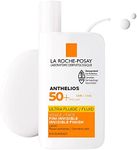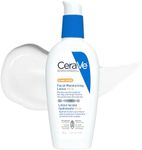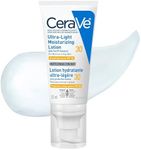Buying Guide for the Best Non Greasy Sunscreen
Choosing the right non-greasy sunscreen is important for both comfort and effective sun protection. A non-greasy sunscreen feels light on the skin, absorbs quickly, and doesn't leave a shiny or sticky residue. This makes it ideal for daily use, especially if you have oily or combination skin, or if you plan to wear makeup over it. When shopping for a non-greasy sunscreen, it's important to look beyond just the 'non-greasy' label and consider several key features that affect how the product feels and performs. Understanding these features will help you find a sunscreen that fits your skin type, lifestyle, and preferences.SPF RatingSPF stands for Sun Protection Factor, and it measures how well the sunscreen protects your skin from UVB rays, which cause sunburn. The higher the SPF number, the greater the protection. SPF values typically range from 15 to 50+. For everyday use, SPF 30 is a common choice, offering a good balance of protection and comfort. If you spend a lot of time outdoors or have fair skin, you might prefer SPF 50 or higher. For brief, indoor-to-outdoor activities, SPF 15 may be sufficient. Your choice should depend on your sun exposure and skin sensitivity.
Texture and FinishTexture refers to how the sunscreen feels when you apply it, and the finish is how it looks and feels after it dries. Non-greasy sunscreens are usually described as lightweight, matte, or fast-absorbing. Some may be labeled as 'gel', 'fluid', or 'lotion', which tend to be less oily than creams. If you have oily or acne-prone skin, look for a matte or powdery finish. For normal or combination skin, a lightweight lotion or gel can work well. Testing a small amount on your skin can help you decide if the texture suits your preference.
IngredientsThe ingredients in sunscreen determine both its effectiveness and how it feels on your skin. There are two main types: chemical (organic) and physical (mineral). Chemical sunscreens absorb UV rays, while physical sunscreens reflect them. Non-greasy formulas often use lightweight chemical filters or micronized mineral ingredients like zinc oxide or titanium dioxide. If you have sensitive skin, mineral sunscreens may be less irritating. If you want a very light feel, look for sunscreens with modern chemical filters and minimal oils or emollients.
Water ResistanceWater resistance indicates how well the sunscreen stays on your skin when you sweat or swim. Labels usually state 'water resistant (40 minutes)' or 'very water resistant (80 minutes)'. If you plan to exercise, swim, or be outdoors in hot weather, a water-resistant sunscreen is a good choice. For daily, indoor use, water resistance may not be necessary and you can opt for a lighter, non-water-resistant formula for a more comfortable, non-greasy feel.
Suitability for Skin TypeDifferent sunscreens are formulated for different skin types. Non-greasy sunscreens are especially beneficial for oily, combination, or acne-prone skin, but can also be comfortable for normal skin. If you have dry skin, you might prefer a formula that is non-greasy but still hydrating. Always check if the product is labeled as 'non-comedogenic' (won't clog pores) if you are prone to breakouts. Matching the sunscreen to your skin type ensures comfort and reduces the risk of irritation or excess shine.
Fragrance and SensitivitySome sunscreens contain added fragrances, which can make them more pleasant to use but may irritate sensitive skin. If you have sensitive or allergy-prone skin, look for fragrance-free or hypoallergenic options. A non-greasy sunscreen without fragrance is less likely to cause irritation or interfere with other skincare products.


















